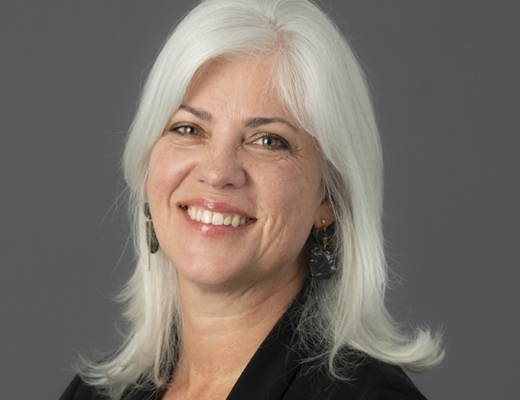About Us >> Meet the Associate Vice Chancellor for Global Affairs
Advocating for Global Health

Jessica Griffin Burke, PhD, MHS
It’s not particularly surprising that my path led me to my current roles as associate vice chancellor for global affairs within the health sciences and professor in the School of Public Health at the University of Pittsburgh.
Growing up in a family where global health and development were not just professions—but regular dinner table conversations—shaped my worldview from a young age. My father, a global infectious disease researcher, and my mother, who worked in international development and education, inspired my lifelong interest in how culture, context and equity shape health outcomes.
Our time living in Thailand during my elementary school years left a lasting impression that shaped how I see and engage with the world, guiding both my work and my approach to life.
My work focuses on the complex realities of global health systems, especially the need to design and implement programs that are culturally grounded, community informed and actionable. I advocate for four key principles in global health work:
“I’m grateful for the opportunity to serve in my current capacity, with a heart full of hope and a deep commitment to helping build a healthier, more equitable world where communities everywhere can thrive.“
- Use data and stories to learn and ask better questions.
Combine numbers and people’s experiences to get a more complete picture. - Understand and work with the real-life messiness of each situation.
Life is complicated, so solutions need to consider all the different parts, not just one piece. - Involve communities and people in a real, ongoing way.
Everyone has valuable knowledge, so listen to lots of diverse voices and keep them involved. - Make sure what you do leads to real improvements in people’s lives.
Whether it’s research, programs or everyday work, the goal is to create positive change that truly matters.
I’ve had the privilege of building and sustaining global research-practice partnerships in countries including Nepal and Madagascar, each shaped by long-term relationships and shared commitments to capacity building and local impact. I’m particularly passionate about creative, participatory approaches—tools that not only generate knowledge but also democratize it.
One exciting example of this is Collaborative Filmmaking, a visual method I co-created that empowers communities to lead conversations about health and change. You can learn more about this work at www.collaborativefilmmaking.com, where we showcase global projects that use film as a research tool and catalyst for action.
Passionate about teaching and engaging with students, I lead a course on a participatory research method called concept mapping and another course that explores the intersection of arts and health.
Before joining Pitt’s Health Sciences leadership team, I served in several administrative roles, including vice dean and associate dean for academic affairs in the Pitt School of Public Health. These experiences deepened my interest in institution building and sustainable program development, and I’ve since dedicated much of my leadership energy to building platforms that foster interdisciplinary collaboration and innovation in global health.
I’m grateful for the opportunity to serve in my current capacity, with a heart full of hope and a deep commitment to helping build a healthier, more equitable world where communities everywhere can thrive.
